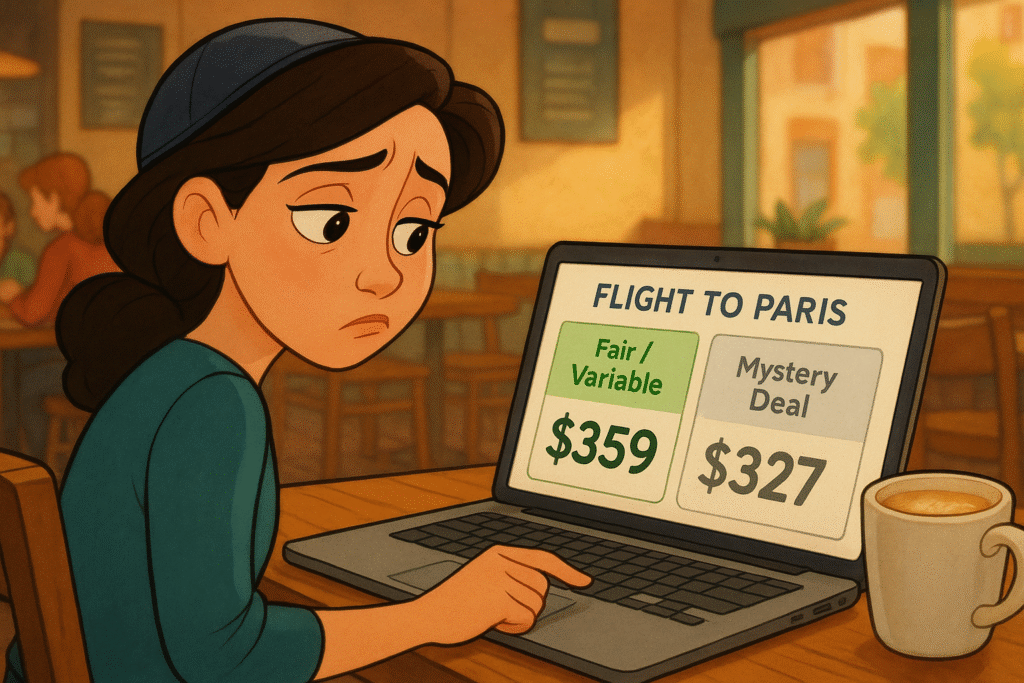
How pricing that’s too “smart” can backfire on brand loyalty.
A new study warns that dynamic pricing without fairness guardrails can trigger backlash.
Think airline tickets.
You might think you got a pretty nice deal on your flight.
But if you find out the person in the next seat paid half what you did, it doesn’t feel fair anymore.
The logic is pretty simple:
Contextual pricing boosts profits by adjusting offers based on buyer traits.
But when customers sense unfairness (whether across gender, race, or any other line) the result shifts to big-time resentment.
Worse, buyers will learn to game the system.
If someone believes tweaking their profile gets them a lower price, they often will.
They don’t trust you, so why play nice?
Researchers Pangpang Liu and Will Wei Sun call this out in their “fairness-aware” model, showing how unbounded personalization turns into strategic manipulation.
For product makers, the lesson is important.
Variable pricing isn’t bad in itself.
But without transparency and clear rules, “smart pricing” becomes “price discrimination” in the customer’s mind.
If you’re rolling out dynamic pricing, start with fairness constraints baked in.
Show customers WHY they’re paying what they pay. Trust is more valuable than the short-term lift.
Want to make your product irresistible? That’s what we do as product marketing consultants at Graphos Product, helping innovators turn need-driven ideas into market-ready successes.
